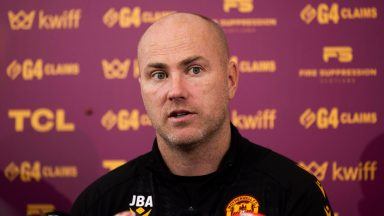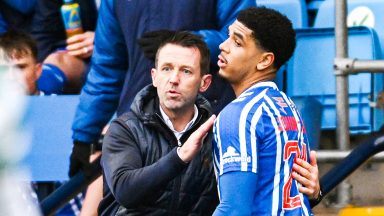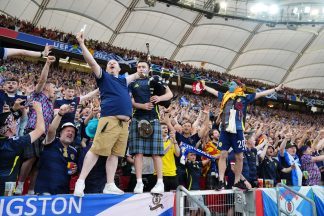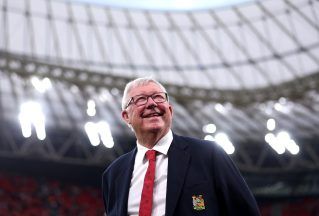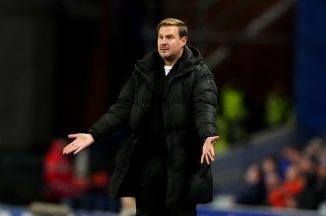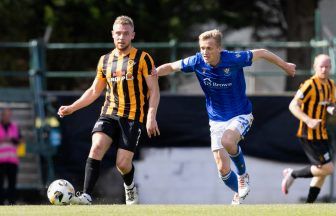As Steven Gerrard fulfilled his media duties on the night Rangers beat Brondby in the Europa League, the reporter from BT Sport asked the question everyone had been waiting for.
Gerrard had been linked with the manager’s position at Newcastle United and with the new Saudi owners likely to bankroll any new boss for a tilt at the top of the Premier League, it looked like it could be an attractive proposition. Was it?
The Rangers manager responded: “Do I look happy? Do I look settled? Don’t ask me silly questions then.”
While Gerrard’s manner was light and cordial, and the experienced former player was savvy enough to distance himself from speculation, it wasn’t a silly question.
The former Liverpool and England captain may have made an impact during his time in Glasgow, but nobody expected his stay at Ibrox to last forever, with everyone aware that the Premier League was likely to lure him back eventually.
There’s surprise at how swiftly the manager moved, with echoes of Brendan Rodgers’ departure from Celtic a few years ago, and at the timing of the departure with everything still to play for this season. But Gerrard got what he wanted from his first adventure in management, and Rangers benefited from what the serial winner brought to the club.
After the brief reign of Pedro Caixinha and the painful and drawn-out interim spell under Graeme Murty, Rangers were crying out for leadership.
As a novice coach without a proper managerial job in his background, Gerrard arrived with plenty missing from his CV, but leadership was one quality he could prove with ease.
Time spent at the very top of the game as a player had drummed in exacting standards and high expectations and Gerrard brought them to a team that needed shaking up. It wasn’t the revolution of Graeme Souness, one that changed Scottish football, but this Liverpool great brought enough clout to move the club forward.
Backed in the transfer market, and allowed to put together his substantial and influential backroom staff, Gerrard made steady progress on the domestic front to try and reel in a Celtic side that had put clear distance between themselves and any local rivals. Success in Europe built confidence and signalled that both manager and club were something to be reckoned with.
The improvement at Rangers in the first two seasons was steady and clear for all to see, albeit there were bumps in the road, especially in the domestic cups. But season three delivered a title, an unbeaten Premiership season, a record-breaking defence and confirmation that the success Gerrard had enjoyed with his boots on could be replicated on the sidelines in his shirt and tie.
At that point, Gerrard looked happy and settled, though questions about his future still weren’t silly.
This season saw an unarguable step backwards in performances for Rangers, though some drop from an invincible campaign was to be expected.
After the Champions League opportunity was blown and the Europa League started with two defeats, Gerrard made reference to needing “big money” to compete with other teams and noted the team had gone two windows without spending a transfer fee. And while the top line in the club’s annual report was the loss of £23.5m, the manager’s review in the same document underlined his belief that money was needed.
“Progress can only occur with ongoing support from our board,” he wrote. “Together, we will continue relentlessly in the quest for more silverware.
“That, of course, means investment into the squad.”
Rangers and Gerrard’s quest for silverware will now be on separate paths, but most fans of the Ibrox club would be confident that their wait for more trophies will be shorter than that of Villa supporters.
That potential, and the current situation where Rangers are still in Europe, in the last four of the League Cup and top of the Premiership, is likely to make the job attractive to many.
Identifying the man to pick up the pieces after Gerrard’s abrupt departure will fall to sporting director Ross Wilson. He has a plan for what the next manager should look like and will finalise a shortlist before scrutinising each and making a recommendation to the board.
In a lengthy interview with 90 Min in September, Wilson said: “This is an exciting place to be and by becoming a winning Rangers, this is a difficult club to leave for anyone.
“You leave behind 50,000 fans, regular European football and a very exciting team.
“If anyone leaves Rangers, it has to be for someone exciting or a new challenge, as there are few who match this club in terms of its size.”
These are the positives Wilson will use to sell the club to the next manager, but any candidate will also be asking about the investment to take the team forward.
The sizeable loss in the accounts make it clear that there won’t be multi-millions to spend to add to what’s at Ibrox, though the board or investors may decide to dig into their own pockets to some extent for the right manager. There’s value to unlock within the squad with a number of sellable players, and it may be that some of the squad are keen to move on now the Gerrard era is over.
Gerrard’s exit leaves Rangers in a strange position, seeming vulnerable after the loss of a significant figure in the middle of a season, and with a resurgent Celtic looking to make last year’s title failure look like a blip. But the club is also equipped with a league winning squad and is still in three competitions with the chance to make it a season to remember.
It’s exactly the sort of job that Gerrard would have jumped at when working as a coach at Liverpool and looking for an opportunity in management. There will doubtless be many candidates who would be keen to talk about their vision for Rangers’ future.
Wilson will have to consider them all and ask who he can envisage being happy and settled at Ibrox when the prizes are handed out at the end of the season. It’s far from a silly question and could end up answering whether Gerrard’s time at Ibrox was a successful transition to lasting success or a golden moment that ended with his departure.


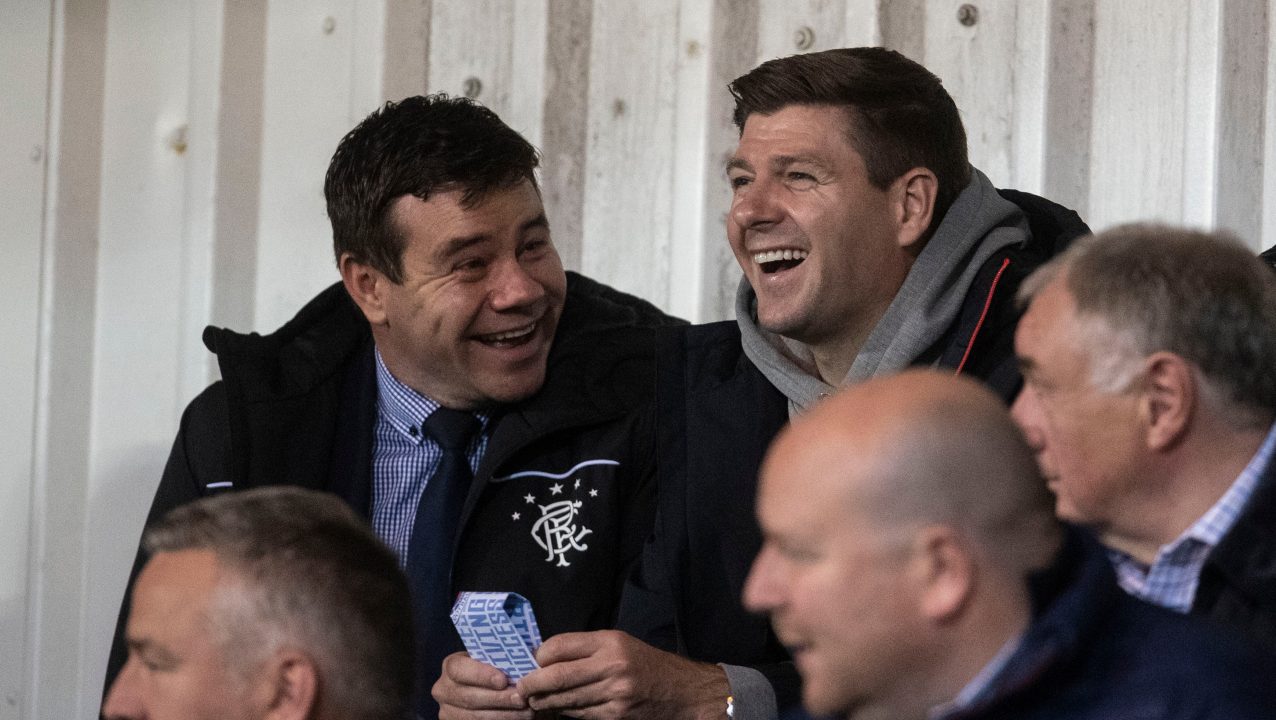 SNS Group
SNS Group















